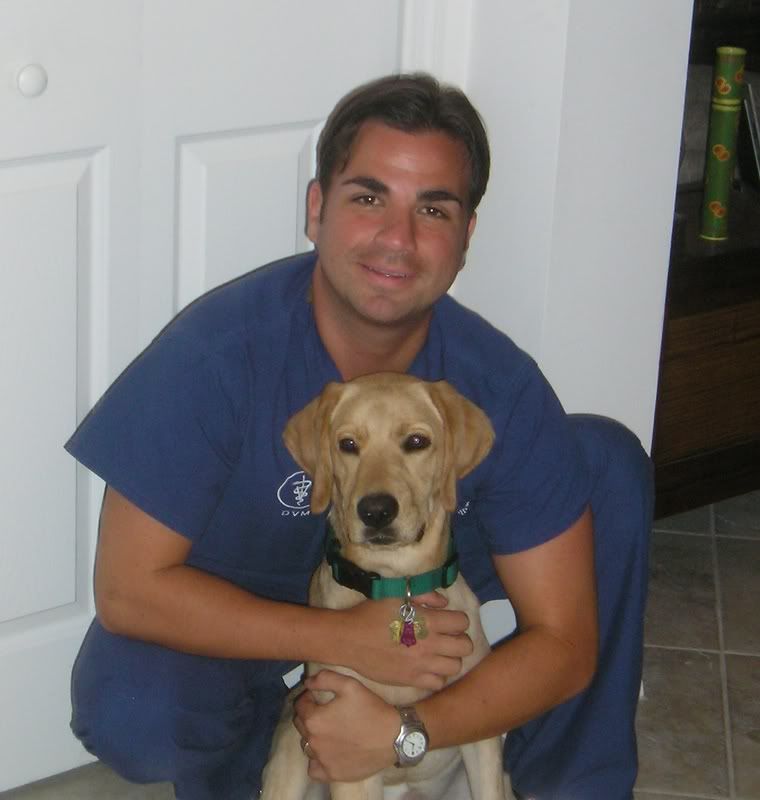Transcript of this week's episode of The Web-DVM:
Hello everyone, this is Dr. Roger Welton, veterinarian, Veterinary News Network Reporter, and host of The Web-DVM.
Keeping your pet safe during the winter holidays may take a little planning and preparation.
During this time of year, many people will gather for holiday parties. With all of the delicious smells and exciting new people, our pets may take advantage of dropped goodies or even an unattended plate. It is natural to share with our pets, but some foods should be avoided, including:
Excessively salty or fatty foods
Foods with onion or onion powder
Grapes and raisins
Poultry bones
Chocolate and sweets deserve special mention due to their abundance during this time of year. Some candies and foods that are artificially sweetened with the ingredient, xylitol, can actually cause a rapid decrease in blood sugar of dogs and have even been implicated in some liver failure cases.
Chocolate is well-known to be toxic for dogs, but baking chocolate and the semi-sweet varieties are much more dangerous, causing heart problems, vomiting, and even death. And, it should go without saying that pets should never be given any alcoholic beverage.
Holiday plants are another source of potential problems. Almost any member of the lily family can be deadly to cats. Other holiday foliage, such as mistletoe and holly, can also cause severe stomach upset. Poinsettias can cause digestive irritation.
Artificial decorations aren't any safer. To a cat, ribbons or strands of tinsel are big temptations and, if swallowed, can cause major problems. Electric cords can cause burns or electrocution and many glass ornaments can be easily broken and cut your pet.
The outdoor world may be just as bad. A common poisoning of pets during the winter months is car anti-freeze. Its pleasant, sweet taste that many dogs and cats find appealing masks a deadly poison. If you even suspect that your pet has consumed anti-freeze, you need to contact your veterinarian or nearest emergency hospital immediately! Ice melting products and rodent poisons are also very dangerous!
Pets suffer the effects of frostbite and hypothermia just as easily as their human owners. If your pet must stay outdoors, be sure to provide them warm shelter from the wind and moisture. In this case, bigger is not better! Smaller homes actually trap body heat more efficiently. Use heated water bowls and replenish everyday.
Know your pet's limitations during this season. Older dogs may not be as sure-footed on the ice and young puppies may not have enough body fat to keep them warm in the snow.
Wintertime can be glorious and full of family fun. It does not have to involve a visit to the animal emergency room if a few simple precautions are taken. Talk to your family veterinarian about a winter "check-up" for your pet.
This is Dr. Roger Welton reporting for the The Web-DVM
Don't forget to catch my live call-in radio show Wednesdays 9PM EST. Listen via podcast live or archived here:
Blog Talk Radio
Links and contact for Italian Grehound Rescue, provided by 12/8/2010 radio guest and Italian Greyhound rescue representative Anne Marie Burgess:
Florida's site
http://floridaigrescue.com/
IGCA Rescue
http://www.italiangreyhound.org/pages/500rescue.html
Contact Anne Marie
igrescuefl@gmail.com
Dr. Roger Welton is the President and chief veterinarian at Maybeck Animal Hospital in West Melbourne Florida, as well as CEO of the veterinary advice and health management website Web-DVM.net.




5 comments:
Wow, I had no idea Lilys were dangerous for cats. Thanks doc, my wife has my house covered in x-mas lilys every year and we have 5 cats!
Even with a dog house, housing dogs outdoors is cruel and unusual, especially in the dead of winter. Even in Summer, the heat and persistence of mosquitos and other biting insects make leaving them outdors almost as mean. If you want a dog in the first place, then you should not mind having it in your home. If you do not want the dog in your home, DO NOT GET ONE BECAUSE OBVIOUSLY YOU ARE NOT A DOG PERSON!!!
I know you have to be all PR, Doc, but ratehr than warn people to provide warm housing for dogs that "must be outside", but I would have prefered you to say, "dogs should not be housed outside."
I do understand your point, p, but not everyone who houses their dog outside is doing a bad thing. I have a client who houses both his dogs outside here in FL. Their "condos" are air conditioned in the summer, heated in the winter, and he changes the bedding twice weekly. He keeps them outside because one of his little girls is highly allergic, but outside, everyone can still enjoy the dogs in the yard and if the little girl's asthma flares up from playing close to the dogs, she just goes inside the home and things calm down quickly. He gets all pertinent vaccines, feed quality dog food, does yearly heartworm and stool screening, flea and tick control, and clearly loves his dogs. Both family and dogs are very happy. It is examples like this that keep me from generally demonizing all people that house their dogs outside.
I am going to keep this article on my favorites as a reference for toxic holiday items. I cannot believe that there is so much to worry about!
Just had my dog at the emergency room because of chocolate. He ate a 16 ounce bag of bakers chocolate. He got so sick that he nearly died! Take this man's advice! I know first hand he is right about chocolate, so I believe him about everything else. Thank goodness I don't have to face the holidays knowing that leaving chocolate on the counter killed my dog!
Post a Comment